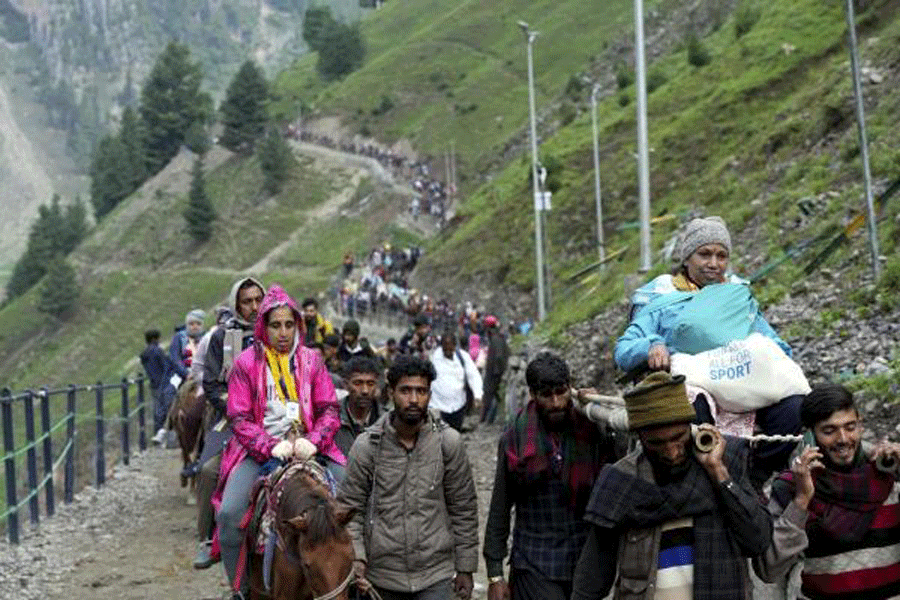The board responsible for conducting the Amarnath Yatra has literally cut short the pilgrimage by a week following a considerable reduction in the flow of pilgrims, the government's alleged politicisation of the annual event in Kashmir doing little to ramp up the numbers.
The conduct of the yatra has been one of the foremost priorities of the administration since the 2019 scrapping of the erstwhile state's special status. The government is spending thousands of crores to boost infrastructure.
Officials said the yatra was being suspended from August 23 due to a "considerable reduction in the flow of pilgrims and urgent repairs and maintenance of the yatra tracks at vulnerable stretches".
That means no pilgrim will be allowed from Wednesday. The only event that will be allowed will be on August 31 to take the Chhari Mubarak (holy mace) through the traditional Pahalgam route, which marks the formal culmination of Sawan Purnima.
The Shri Amarnath Shrine Board, however, claimed there had been an overwhelming number of pilgrims.
A spokesman warned that the movement of pilgrims on both tracks leading to the holy cave was not advisable as they were undergoing repairs.
The duration of this year's yatra had been the longest — 62 days — with the government hoping to get the maximum possible number of pilgrims.
But it ended up attracting 4.4 lakh pilgrims, over 2 lakh less than the record numbers who visited the shrine during Omar Abdullah's rule in 2011.
The authorities have deployed tens of thousands of soldiers, paramilitary troops and policemen on the Pahalgam and Baltal routes — which pass through Anantnag and Ganderbal — to ensure an incident-free pilgrimage.
The massive security presence and resultant restrictions are believed to have hit the inflow of non-pilgrim tourists in the last two months, as have the arduous trek and the ice Shivling in the Amarnath cave melting before the end of the 62-day yatra.
With the number of pilgrims drying up, the authorities want to give respite to the soldiers — along with thousands of civilian staff — who have worked tirelessly since July 31 to facilitate an incident-free pilgrimage.











